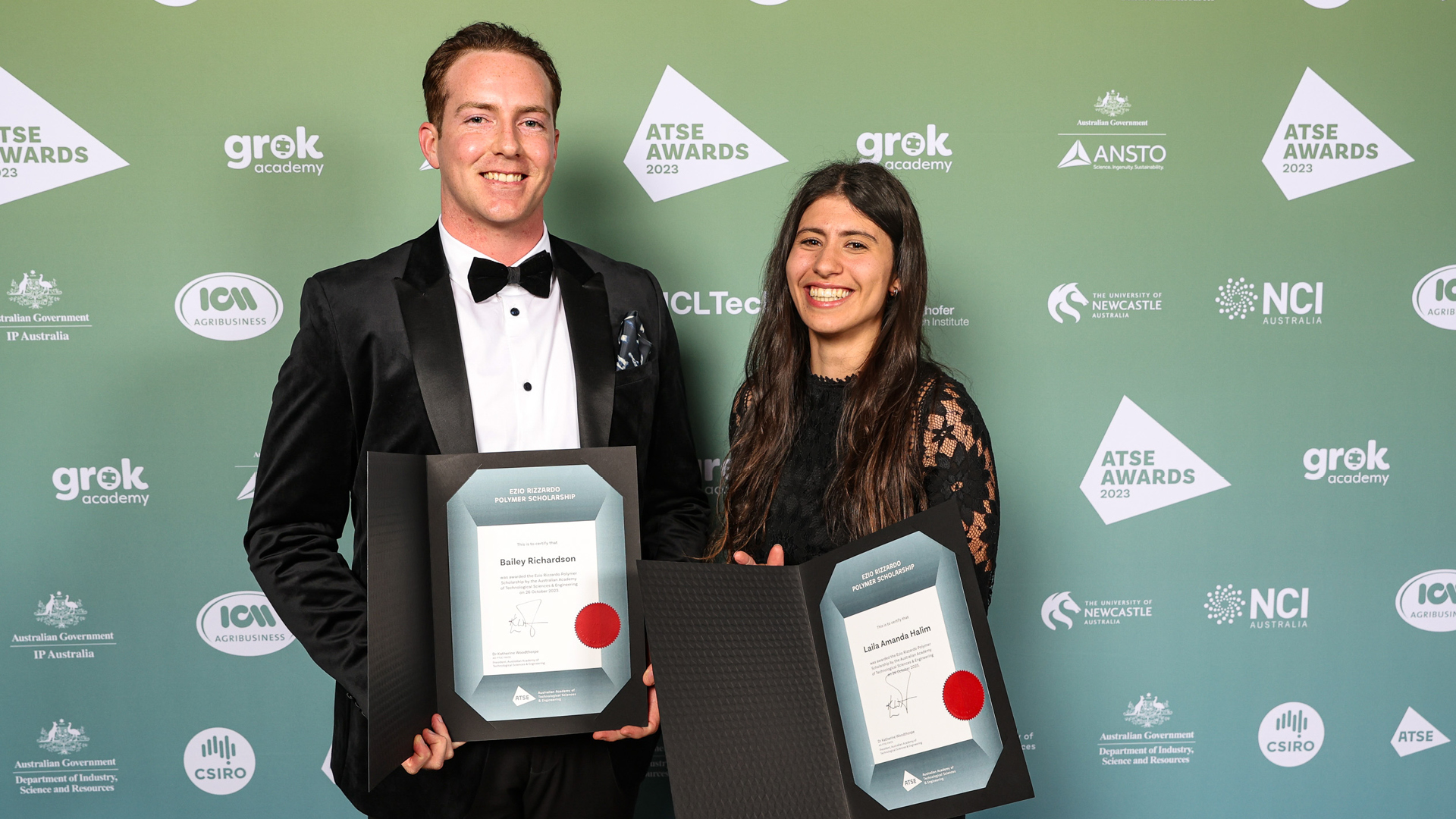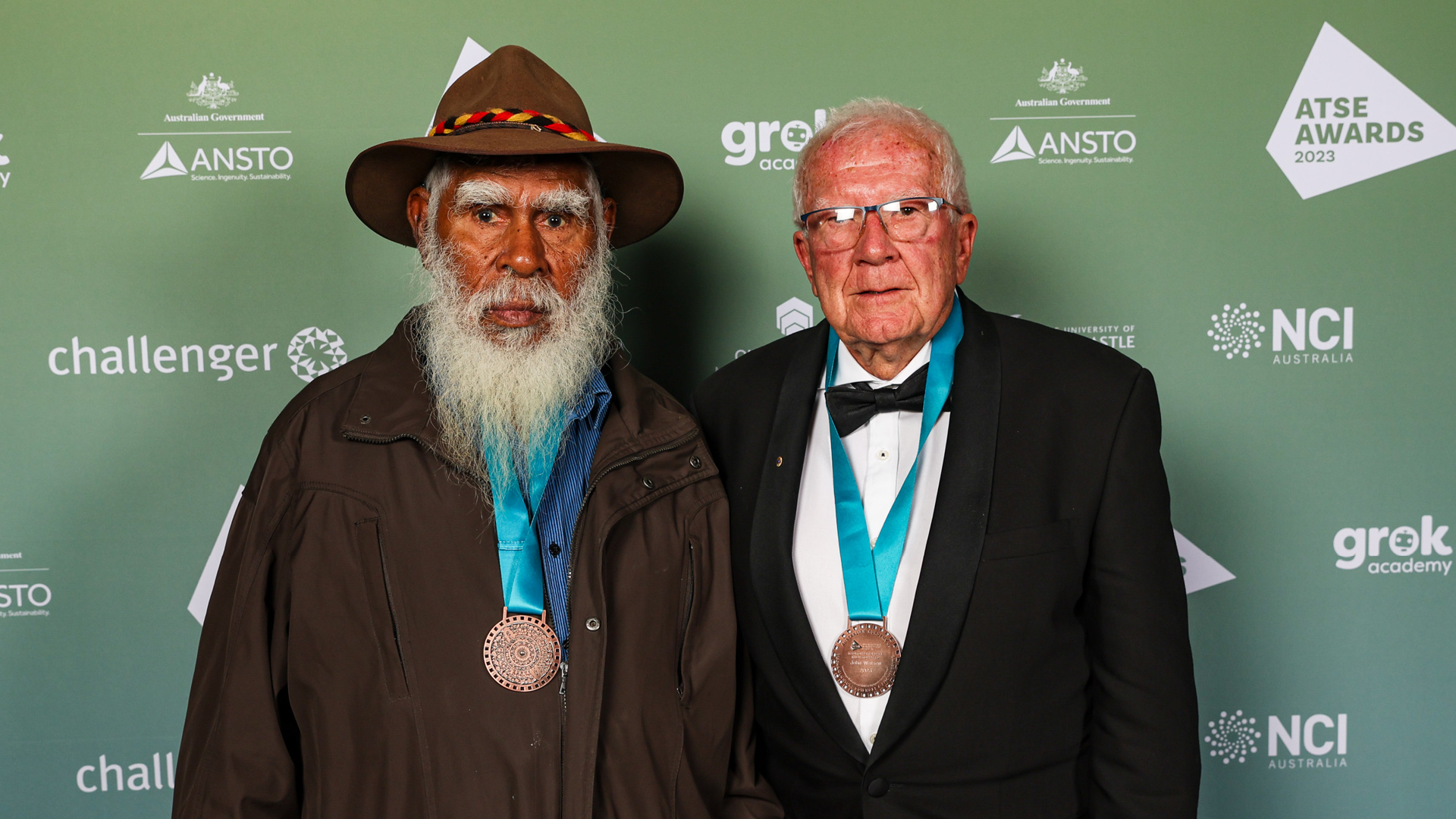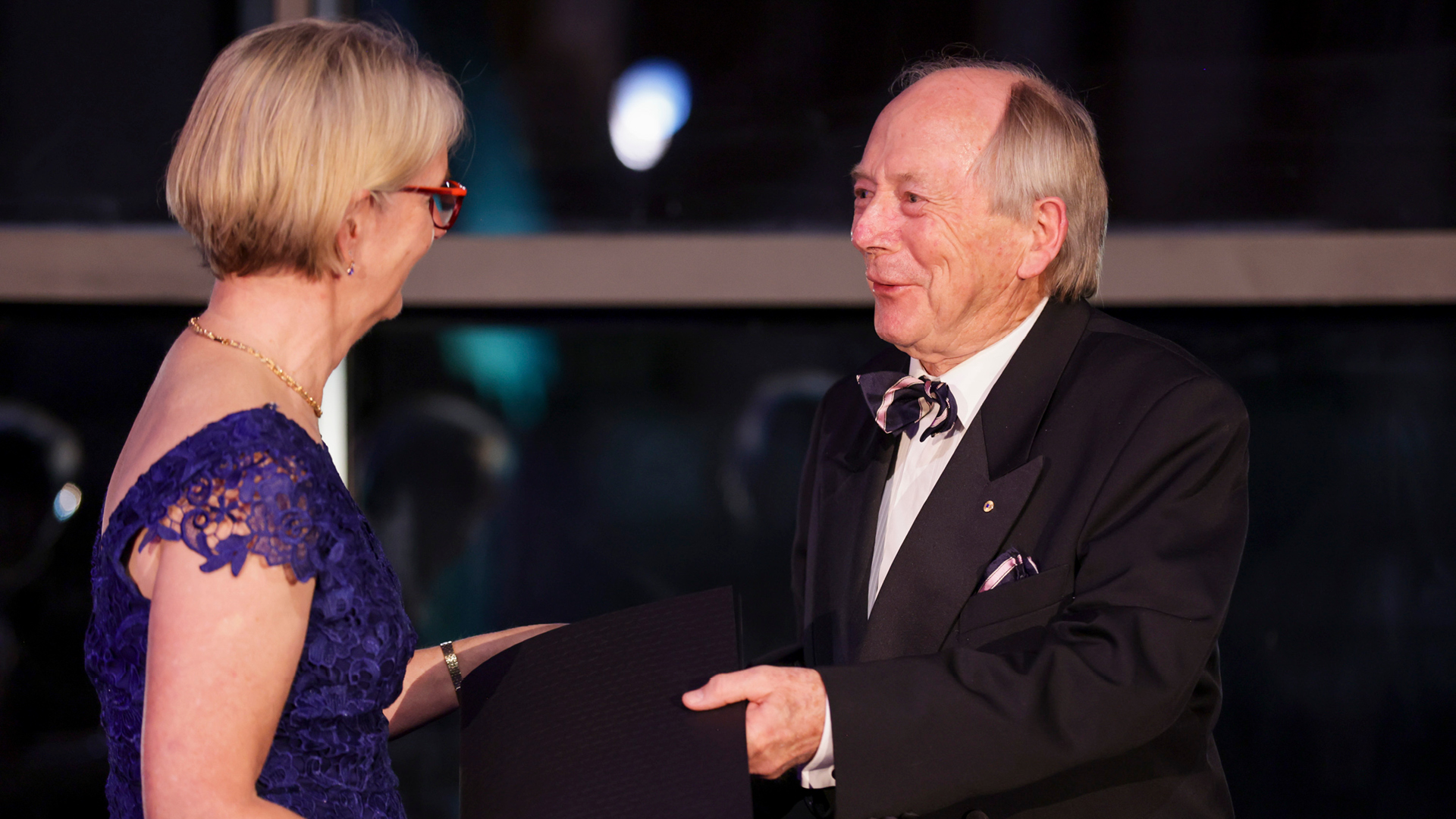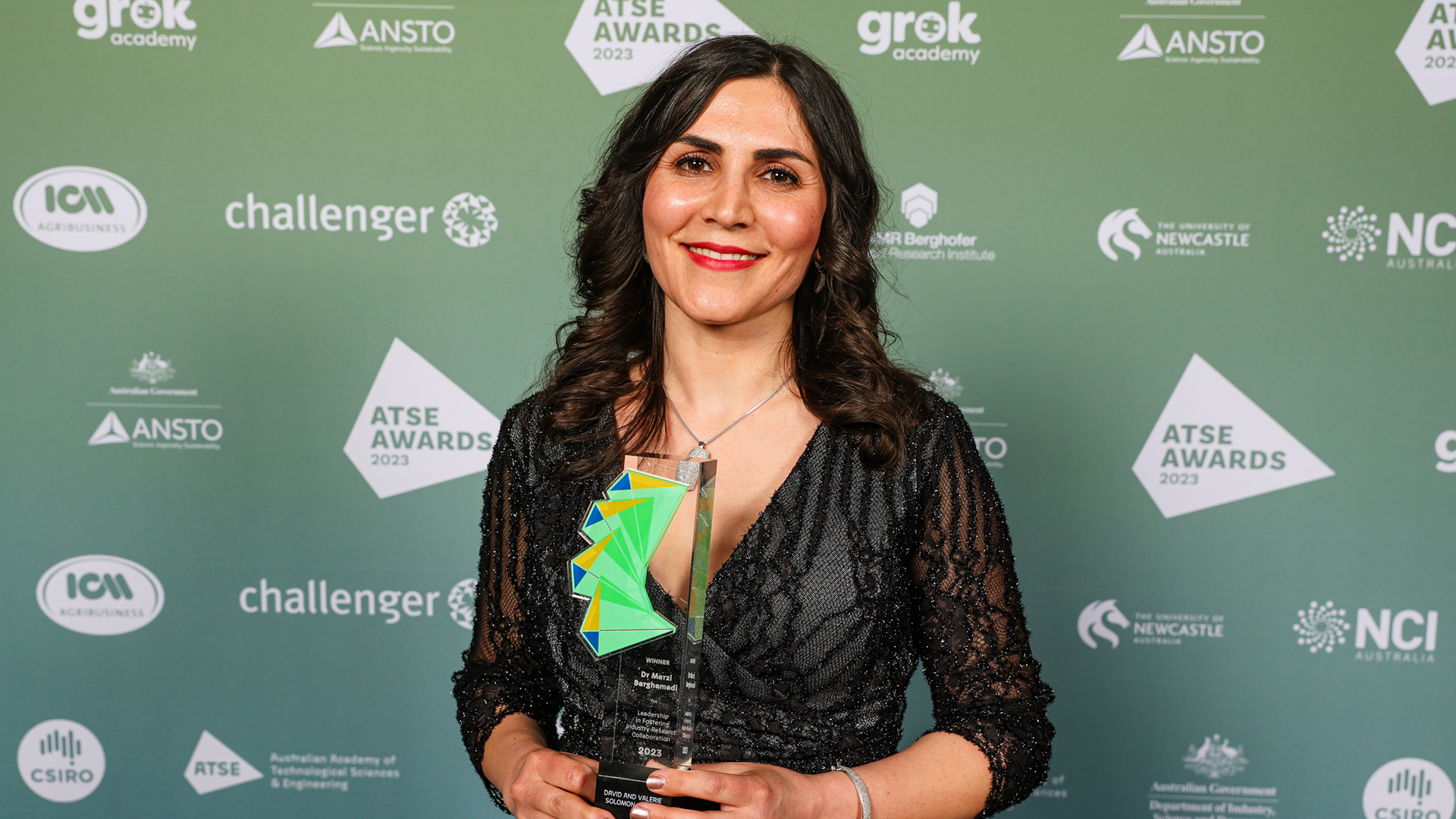Professor David Solomon AC FRS FAA FTSE is an Australian, world-renowned polymer chemist. He is best known for his work in developing Living Radical Polymerisation techniques, and was the principal inventor of Australia’s first polymer banknotes.
He is often referred to as the father of polymer research in Australia, having established three internationally acclaimed polymer research groups: in industry (Dulux, 1960), in Australia’s peak scientific research organisation, CSIRO (1970) and at the University of Melbourne (1990).
His passion for applied research, Australian industry innovation based on Australian discoveries and encouraging researcher-industry engagement is reflected in his diverse career spanning leading roles in industry, research, research translation, invention, and academia.
It is this diverse and life-long experience of researcher-industry engagement, problem-solving and growing wealth for the country that is celebrated in the David and Valerie Solomon Award for Research-Industry Collaboration.
Valerie Solomon
Mrs Solomon’s first business venture was breeding miniature Schnauzers in the family home in Glen Waverley. She then turned her attention developing an Angus cattle stud with the registered name Betbelanne on a challenging 59-hectare hilly property at Arawata near Korumburra in south-east Gippsland.
This was so successful it was transferred to a more manageable property at Officer, now a suburb of Melbourne. Mrs Solomon managed this farm for many years, with Professor Solomon as her trusty weekend farm labourer. She managed this stud until its sale in 2004.
Mrs Solomon hopes that the David and Valerie Solomon Award will encourage a new generation of women science and engineering graduates to establish their own businesses in an area of their passion.













